Chengdu, the capital of China’s Sichuan Province, beautifully combines ancient culture with modern development. Thanks to its rich culture, Chengdu is famous for its delectable food and has historical value which makes it a one-stop travel destination for people with eclectic tastes. The city prides itself in housing centuries-old temples, breathtaking ancient streets, and world-famous giant pandas and authentic Sichuan delicacies. This guide seeks to take you through the iconic places that top the must-visit attractions in Chengdu so you can seamlessly plan a memorable trip.
What are the must-see panda attractions in Chengdu?
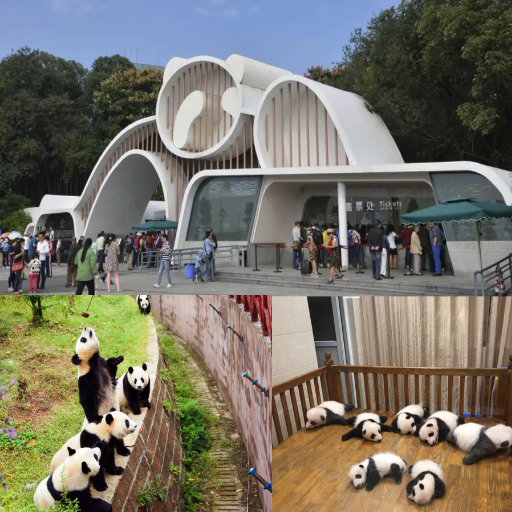
How to plan a visit to the Chengdu Research Base of Giant Panda Breeding?
In planning any trips, one of the Chengdu Research Base of the Giant Panda Breeding must be at the base by 7 30 AM. This influential step stems from one of the pandas being fed from 7 30-10 AM. Having a guide who understands the Panda’s behaviors accompanied by extensive walks on the attractive trails would be very important. Tickets can be purchased on the official website and trusted travel agents. Pacing around the center would take roughly 3-4 hours to complete comfortably- especially the conservation museum and panda nurseries. Take note of Chendgu’s humidness and aim accordingly.
What can you expect to see at the Giant Panda Breeding Center?
At the Giant Panda Breeding Center, one can witness pandas in various aspects of their different stages, including immature cuddly cubs in nurseries and grown-up adult pandas relaxed in their enclosures. The center also has displays of panda conservation, breeding, and their work on their genetics. Along with rare animals like red pandas that are only found in few countries, one can also see the beautiful bamboo woods and walking paths that surround the center.
Are there other panda-related attractions in Chengdu?
There are other panda puzzle attractions in Chengdu besides the Chengdu Research Base of Giant Panda Breeding. The Dujiangyan Panda Base, for example, focuses on Panda rescue and disease prevention and Wolong National Nature Reserve, a landmark for conservation. These places allow the public to learn about panda habitats, volunteer, and even help feed or care for the animals under certain supervised conditions. Every place is dedicated to conservation and education, so Chengdu has become a prime location for panda lovers.
Which historical sites should I include in my Chengdu itinerary?
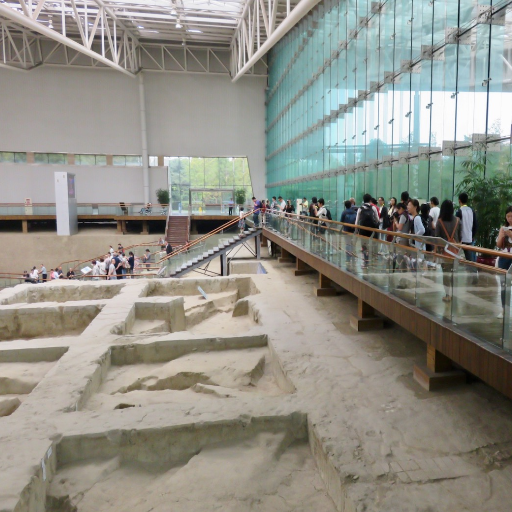
Why is Wuhou Temple a notable point of interest in Chengdu?
Wuhou Temple, more popularly known as the Temple of Marquis Wu, is a Chengdu Monumental Scheme that preserves Zhuge Liang, a famous politician and military strategist of the Three Kingdoms period. The temple is known for Zhuge Militres but is also dedicated to Liu Bei and regions of the Shu Han Kingdom, making it of great importance. The site itself provides ancient buildings, magnificent statues, and engravings that showcase the artistry of that period. In addition, the garden would give anyone visiting a place to relax and appreciate ancient China’s wonders, which makes it an attraction for history lovers.
In what ways can you study Jinli Street and its culture-rich past?
As one of Chengdu’s quintessential and invaluable cultural and historical sites, Jinli Street has a special place in the ancient Chinese life of the Shu Han dynasty. To start, navigate through the narrow cobblestone streets lined by tea houses, shops, and food stalls built in the architectural style of the Qing Era. Relish authentic Sichuan delicacies as you watch local craftsmen showcase their skills in traditional calligraphy, paper cutting, and jewelry making. Furthermore, take note of the lively street scenes through performances of shadow puppetry and Sichuan opera which the street is known for, showcasing the commitment towards the conservation of culture. To appreciate the street fully, consider visiting in the late evenings when the street lit by lanterns becomes rhe symbolic of the ancient Chinese mystique of craftsmanship and folklore.
What can visitors learn at the Jinsha Site Museum?
The Jinsha Site Museum is home to artifacts from the ancient Shu civilization that flourished over 3,000 years ago. The cultural legacy of Shu is explored in great detail including its social organization, religions, and artistic endeavors. Some highlighted exhibits include the Sun and the Immortal Bird Gold Ornament, numerous jade items, and exquisite ivory carvings. Visitors to the Jinsha Site Museum are ascertained to understand the well-preserved relics, interactive displays, and archeological information. These artifacts and materials explain the customs, spiritual practices, and exceptional artistry of the Shu kingdom.
What are the top cultural experiences in Chengdu?
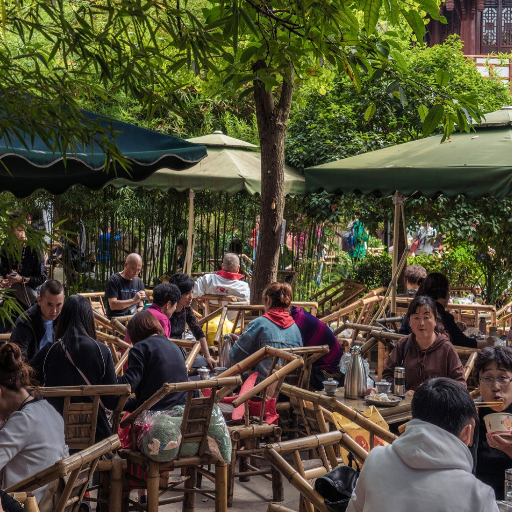
Where can I find authentic scenic opera shows in Sichuan?
In Chengdu, the Chengdu Culture Park provides nightly performances that include Shufeng Yayun Theater, which features an interesting variation of mask-changings called bian lian, along with frequent fire breathing toasted by traditional music. Notable as well is Jinjiang Theater, famed for its detailed classical style Sichuan opera staging alongside its historical ambiance. Other modern facilities like the Chengdu Opera House also provide the basic elements of this opera, offering a blend of captivating experiences for the audience.
How do we go about Chengdu tobacco shops’ tea culture?
Suchen, a form of Sichuan tea characterized by jasmine and green tea, may be enjoyed while taking in the region’s relaxed tempo. Additionally, head to tea houses where locals spend their leisure time playing mah-jong with other community members. During this time, marvel at Chinese tea preparations, ceremonies, and authentic Sichuan tea. Immerse yourself in Chinese games and tea preparations. Unlike Heming Tea House in People’s Park, Shunxing Ancient Tea House in Sichuan blends culture and history, as the region’s architectural performing arts are all in one place. Relax as nature provides a lush environment.
What novel activities does the Sichuan Cuisine Museum provide?
The Sichuan Cuisine Museum offers immersion into the culinary traditions of Sichuan by incorporating fun activities and learning. Guests can view the traditional kitchen layout, old cooking appliances, and the development of Sichuan cooking. A highlight is taking part in the cooking workshops facilitated by professional chefs, where guests make authentic Sichuan specialties such as Kung Pao Chicken or Mapo Tofu. Besides these, guests may also take part in the tasting sessions, where they sample authentic Sichuan dishes, giving them a chance to relish local cuisines restfully.
Which temples and religious sites are worth visiting in Chengdu?
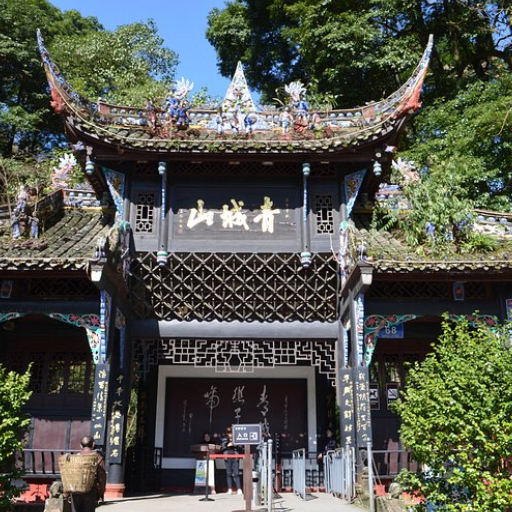
What makes Wenshu Monastery a must-visit Buddhist temple?
Sharing the namesake of the revered Buddhist deity, Wenshu Monastery is also lauded as Manjushri Monastery and is regarded as religiously, historically and culturally significant. Wenshu Monastery is one of the tangiest preserved Buddhist monasteries in Chengdu, built during the Tang dynasty. Thousands of precious sacred relics are hosted within its bounds, including pictures, statues, and even statutes. Its restfully designed architecture, alongside gardens, creates a peaceful atmosphere for meditation and exploration. Many visitors are also fond of the monastery’s teahouses, served within the calm confines of the temple grounds, further cementing the site’s spirituality and cultural prominence.
How to explore the Taoist Qingyang Temple?
Begin to explore the Taoist Qingyang Temple by paying attention to the detailed architecture and the use of Taoist symbols like Eight Trigrams or animal motifs encompassing profound philosophical concepts. Move through the halls and courtyards, including the Sanqing Hall, with sculptures of various Taoist divinities and get dip into the realms of the religion of Taoism. Loosen up and engage in local cultural practices like tea ceremonies or simple, leisurely Taoist rituals if made available to you. Afterward, strolling the gardens alongside the temple while appreciating the peace and reflecting on the temple’s thoughts will help show its history and religion.
Are there any other major religious sites in Chengdu?
Indeed, Chengdu has some other notable religious places. One of the key Buddhist temples is Wenshu Monastery, a Tang dynasty structure famous for its magnificent Buddhist architecture and vast collection of artifacts. Another key place is Daci Temple, a significant historical and religious site because of its association with Zen Buddhism and splendidly designed traditional halls and courtyards. Lastly, Qingyang Palace, one of the most celebrated Taoist temples in China is famous for its artistic and scenic beauty and preservation of cultural Taoist practices. These sites are placed in relaxing environments, ideal for self-reflection and prayer, and visitors can appreciate these places’ extensive historical and religious context.
What are the best day trips from Chengdu?
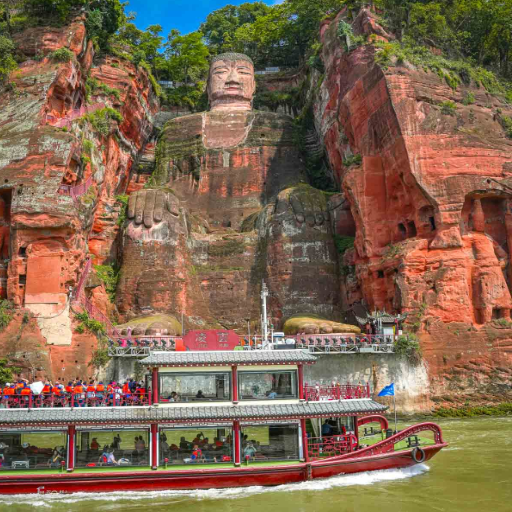
What are the steps to visit the Leshan Big Buddha?
You will need to consider timing, how you will get to the site, and how you will gain entry. The area is about 120km away from Chengdu, but you can take a high-speed train to Leshan Station followed by a bus or taxi ride. It is best to visit in the morning or late afternoon to beat the crowds and the temperature. Tickets to the site can be purchased beforehand or at the venue and entry normally allows access to the Buddha statue, views walks, and the surrounding temples. Additionally, many visitors take the boat ride and see the area from the water. As the visit entails climbing stairs, and walking, it is vital to have comfortable shoes. Moreover, check the weather beforehand because heavy rain or fog might block the view.
What are the expectations of individual users at the Sanxingdui Museum?
The Sanxingdui Museum evaluates all of Sanxingdui’s astonishing, newly discovered artifacts through the lens of the ancient Chinese Shu Dynasty. A significant archaeological site in China is on display, which encompasses items depicting bronze masks, jade relics, pottery, gold ornaments, and other artifacts exhibiting uniqueness from 3,000 years ago. Two major exhibition halls highlight their sophisticated culture, which is a total advancement in their artistry and exquisite, unparalleled, and advanced craftsmanship. The Sanxingdui brings to life through detailed narratives that shape every sense, alongside audiovisual items that display the ingenious cultural and historic importance of the wonders unearthed from the Sanxingdui site.
Is it worth visiting the Dujiangyan Irrigation System?
The answer is yes. It requires a visit. This site is a UNESCO World Heritage site known for its engineering sophistication. It was constructed over two millennia ago during the Qin Dynasty. The system is not like any other dam; it utilizes natural water flows to regulate floods while concurrently enabling irrigation. This structure is still in use today. While exploring the structure, guests get to appreciate its historical and technical importance while taking in the beauty of surrounding sites, including the Qingcheng Mount, a revered Taoist landmark. The site not only provides insight into ancient Chinese ingenuity, but also provides A picturesque and culturally immersive experience.
Where are the best places to experience Chengdu’s local culture and cuisine?
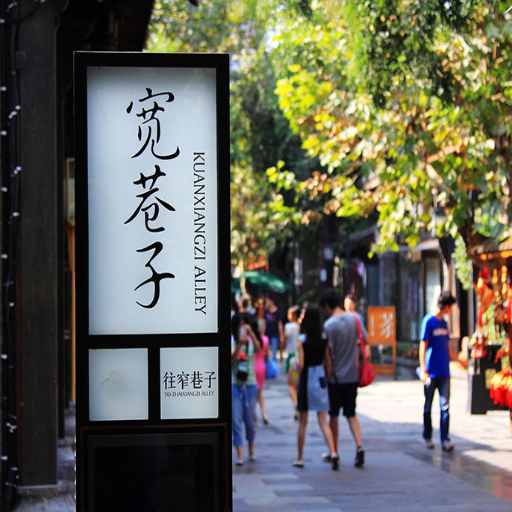
What makes a tourist destination, Kuanzhai Alley, so popular?
Popularly known as Wide and Narrow Alleys, Kuanzhai Alley is a treasured ancient and cultural site in Chengdu with the possibility of accommodation expansion. Travellers flock to see the Qing Dynasty opened courtyards, boutique stores, tea houses, and local restaurants serving delicious Sichuan food. Furthermore, cultural presentations and exhibitions meant to showcase the history of Chengdu are performed within the alleys. The ambiance of Kuanzhai Alley is nostalgic yet lively, making it an essential location for anyone who wants to appreciate Chengdu’s culture.
What are some of the best restaurants specializing in Chengdu’s Sichuan Cuisine?
Chengdu is filled with places where one can try the excellent Sichuan dishes. One of the most popular is Chen Mapo Tofu, a mapo tofu specialty restaurant that serves this dish with a generous dose of mouth-numbing Sichuan peppercorns. A must-stop on any tour of Chengdu is Shu Jiu Xiang Hot Pot, which serves authentic, spicy Sichuan hot pot filled with local ingredients, supple meat, and blistering hot soups. For those craving the excitement of self-service, Yulin Chuanchuan is famous for serving chuanchuan, meat on a skewer in a spicy broth, where diners get to participate in the cooking process. These are but a few of the places that showcase the colorful culinary practices of Chengdu.
What activities does Chengdu have to offer from a night time perspective?
The Chengdu culinary experience fuses the modern dining sector together with traditional cuisines. For high-end entertainment, head over to Lan Kwai Fong Chengdu where these trendy bars, nightclubs and other lounges provide an upscale vibe along with varied options to be entertained. For the more culturally immersed, ancient Jinli Street offers traditional teahouses alongside performances revealing a part of Chengdu cultural history. For people interested in a blend of relaxed atmosphere with live music, Little Bar is famous for renowned artists who perform here. Collectively, these portray Chengdu as versatile and multifaceted.
Reference sources
Frequently Asked Questions (FAQs)

Q: What are the top attractions in Chengdu?
A: Some of the top attractions in Chengdu include the Chengdu Panda Base, Jinli Ancient Street, Tianfu Square, and the Chengdu Museum. These places offer a mix of natural beauty, cultural experiences, and historical insights, making them must-visit destinations for tourists exploring Chengdu.
Q: Is the Chengdu Panda Base worth visiting?
A: Absolutely! The Chengdu Panda Base is one of the city’s most popular attractions. It’s a research and breeding facility where you can see giant pandas up close, learn about conservation efforts, and even watch adorable panda cubs. It’s a unique experience that shouldn’t be missed when you visit Chengdu.
Q: What are some things to do in Chengdu for history enthusiasts?
A: History buffs will enjoy visiting the Chengdu Museum, which offers a comprehensive look at the history of Chengdu and Sichuan province. Additionally, exploring Jinli Ancient Street and Luodai Ancient Town provides a glimpse into the city’s past. These places showcase traditional architecture, local customs, and the rich culture of Chengdu.
Q: Are there any unique cultural experiences to have in Chengdu?
A: Yes, Chengdu offers several unique cultural experiences. One of the most fascinating is watching a Sichuan Opera performance, which often includes the famous face-changing act. You can also explore the local food scene, visit traditional tea houses, and experience the laid-back lifestyle that Chengdu is known for.
Q: What are some top things to do around Chengdu?
A: Around Chengdu, you can visit the Leshan Giant Buddha, explore the scenic Mount Qingcheng, or take a trip to the Dujiangyan Irrigation System. These attractions offer beautiful landscapes, historical significance, and are easily accessible as day trips from the city center of Chengdu.
Q: Is the Sichuan Science and Technology Museum worth visiting?
A: The Sichuan Science and Technology Museum is an excellent attraction, especially for families and science enthusiasts. With interactive exhibits covering various scientific fields, it’s both educational and entertaining. The museum spans over 50,000 square meters and provides a fun way to learn about science and technology.
Q: How can I best explore Chengdu’s food scene?
A: To explore Chengdu’s renowned food scene, consider taking a food tour or visiting popular areas like Jinli Ancient Street or the Wide and Narrow Alleys. Try local specialties such as hot pot, mapo tofu, and dan dan noodles. Don’t miss the opportunity to experience the vibrant street food culture, which is an integral part of Chengdu’s culinary landscape.
Q: What are some relaxing places to visit in Chengdu?
A: For a relaxing experience, visit People’s Park in the heart of Chengdu. Here, you can join locals in sipping tea at a traditional teahouse, watch people practicing tai chi, or simply enjoy the peaceful atmosphere. The Wenshu Monastery, with its beautiful gardens and tea house, is another tranquil spot to visit in Chengdu.